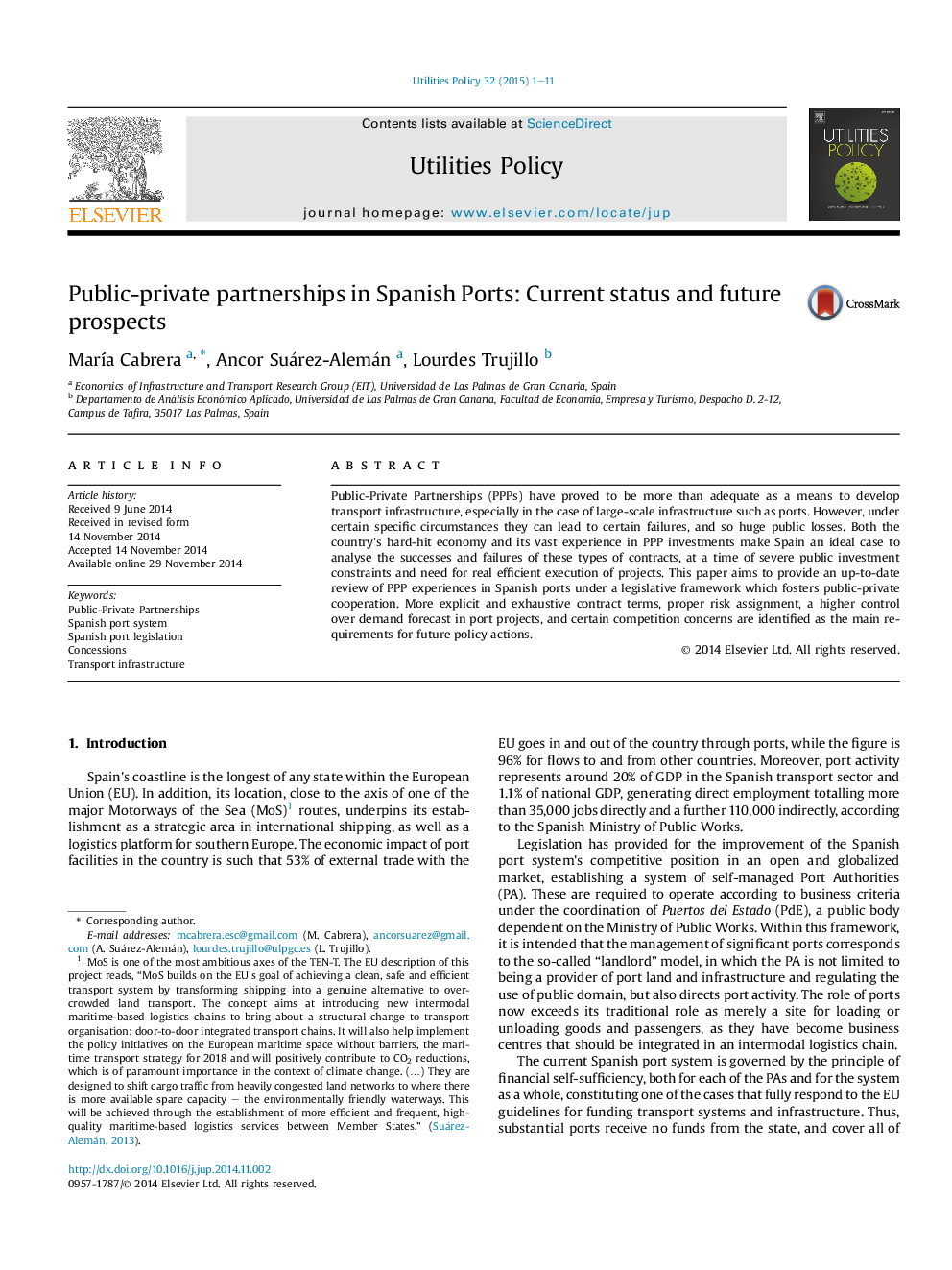| Article ID | Journal | Published Year | Pages | File Type |
|---|---|---|---|---|
| 1000101 | Utilities Policy | 2015 | 11 Pages |
•Both economic crisis and vast experience in PPP investments make Spain an ideal case to analyse the concession contracts.•The latest wave of news with regard to inadequate budgets or public losses has put the Spanish system in the spotlight.•The non-explicit risk allocation is a threat to the development of the PPP contract, and may increase costs for the society.•The control over demand estimations for port projects becomes vital.•Regulation on PPP in ports should consider the concentration of market and the existence of vertical integration risks.
Public-Private Partnerships (PPPs) have proved to be more than adequate as a means to develop transport infrastructure, especially in the case of large-scale infrastructure such as ports. However, under certain specific circumstances they can lead to certain failures, and so huge public losses. Both the country's hard-hit economy and its vast experience in PPP investments make Spain an ideal case to analyse the successes and failures of these types of contracts, at a time of severe public investment constraints and need for real efficient execution of projects. This paper aims to provide an up-to-date review of PPP experiences in Spanish ports under a legislative framework which fosters public-private cooperation. More explicit and exhaustive contract terms, proper risk assignment, a higher control over demand forecast in port projects, and certain competition concerns are identified as the main requirements for future policy actions.
